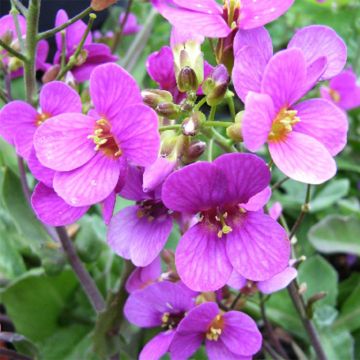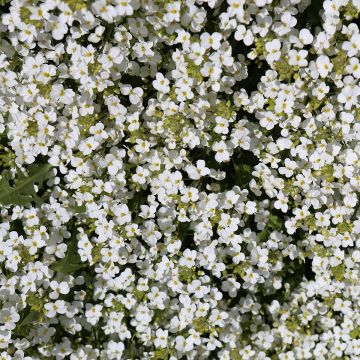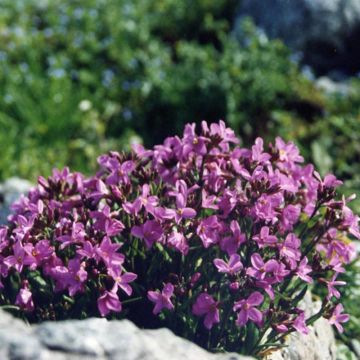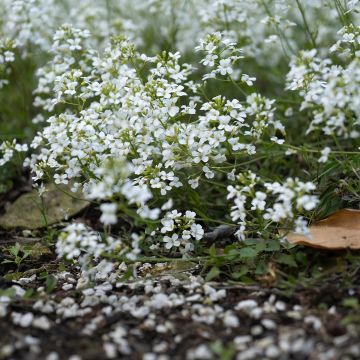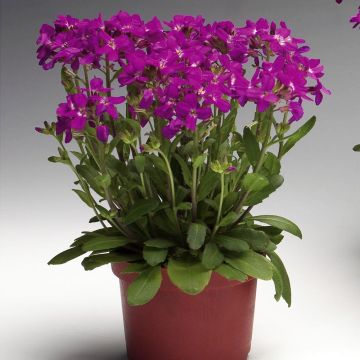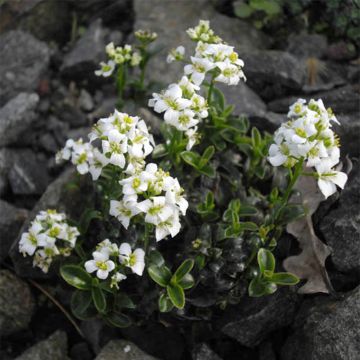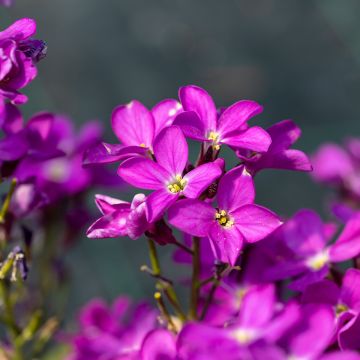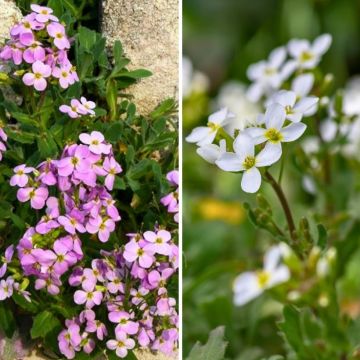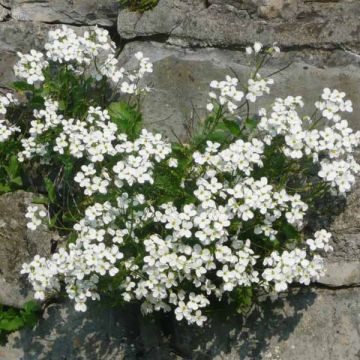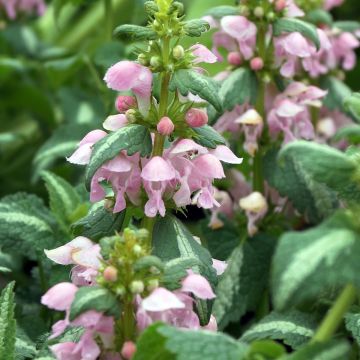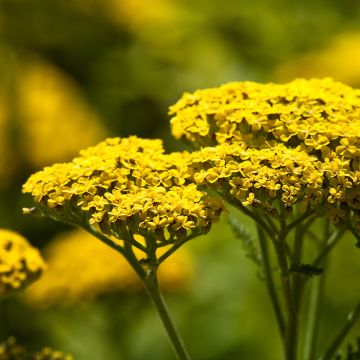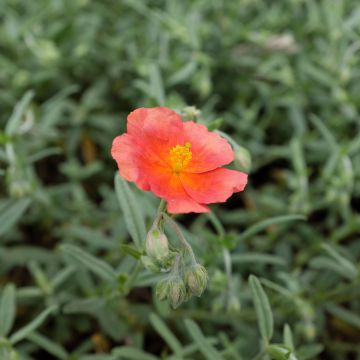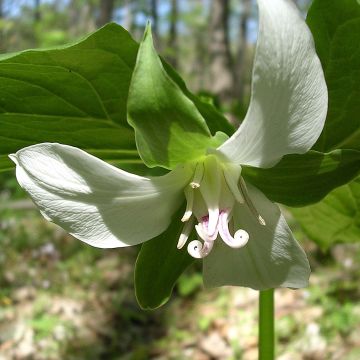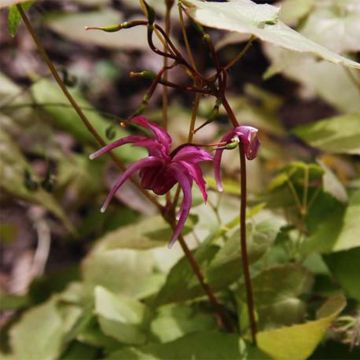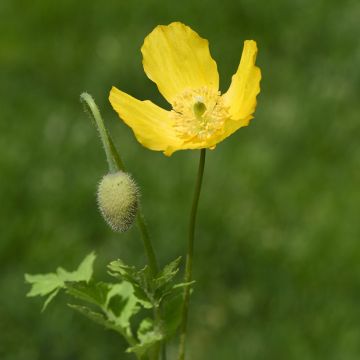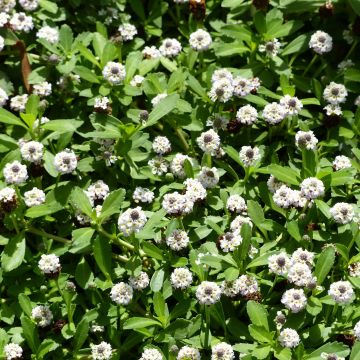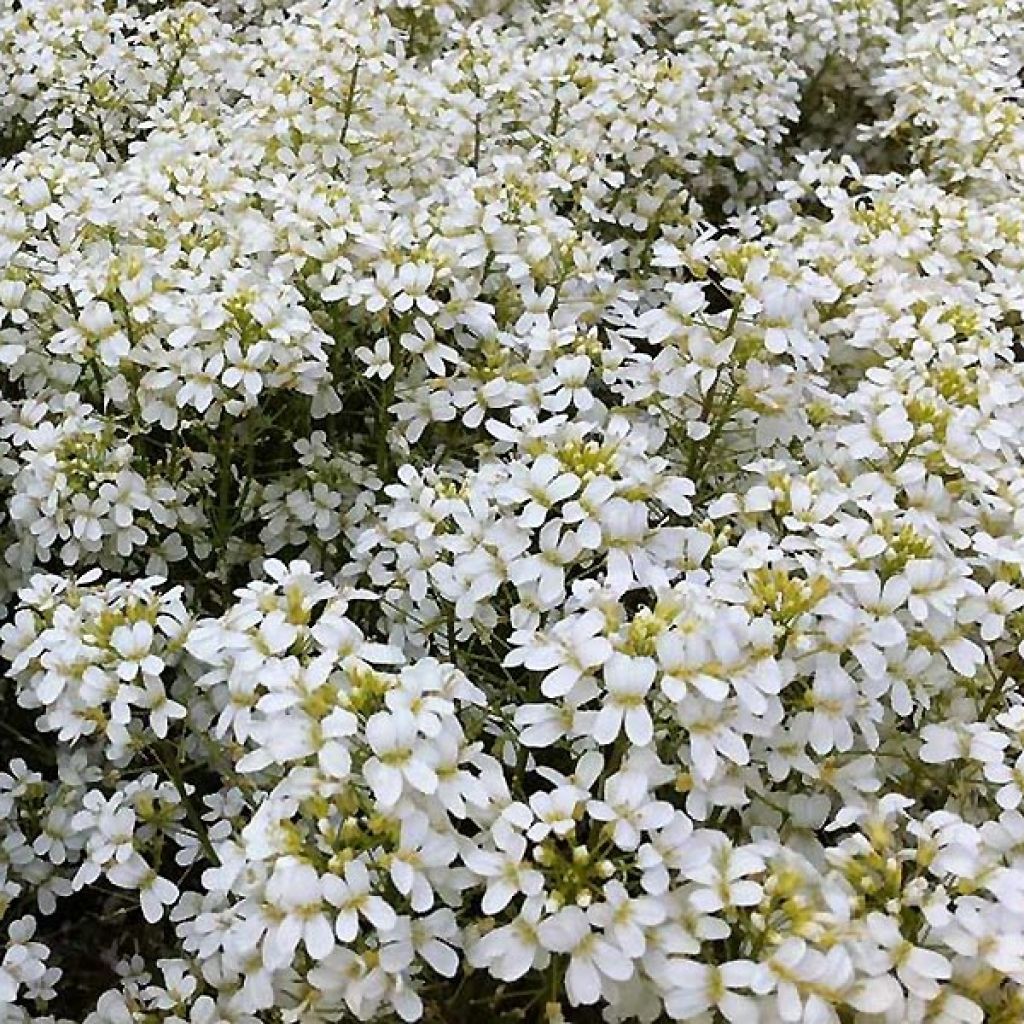

Arabis procurrens Neuschnee
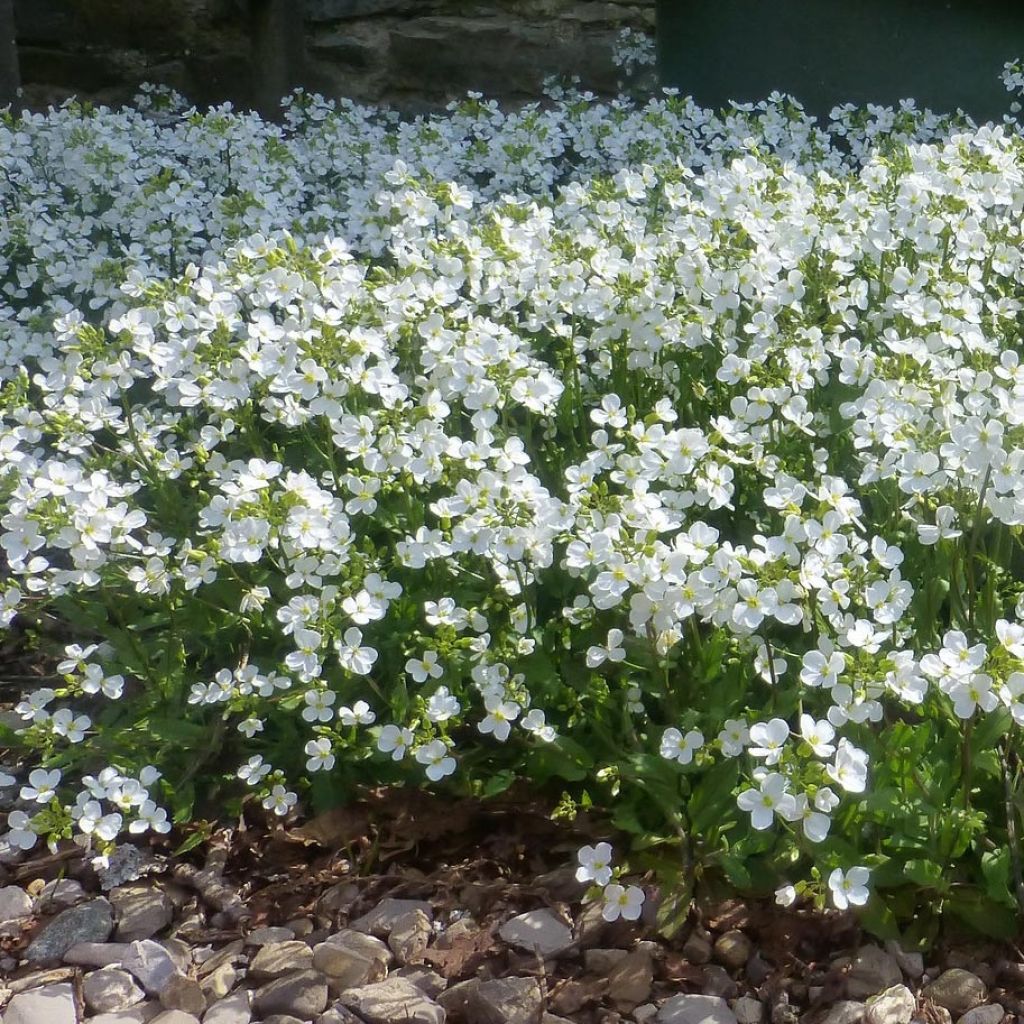

Arabis procurrens Neuschnee
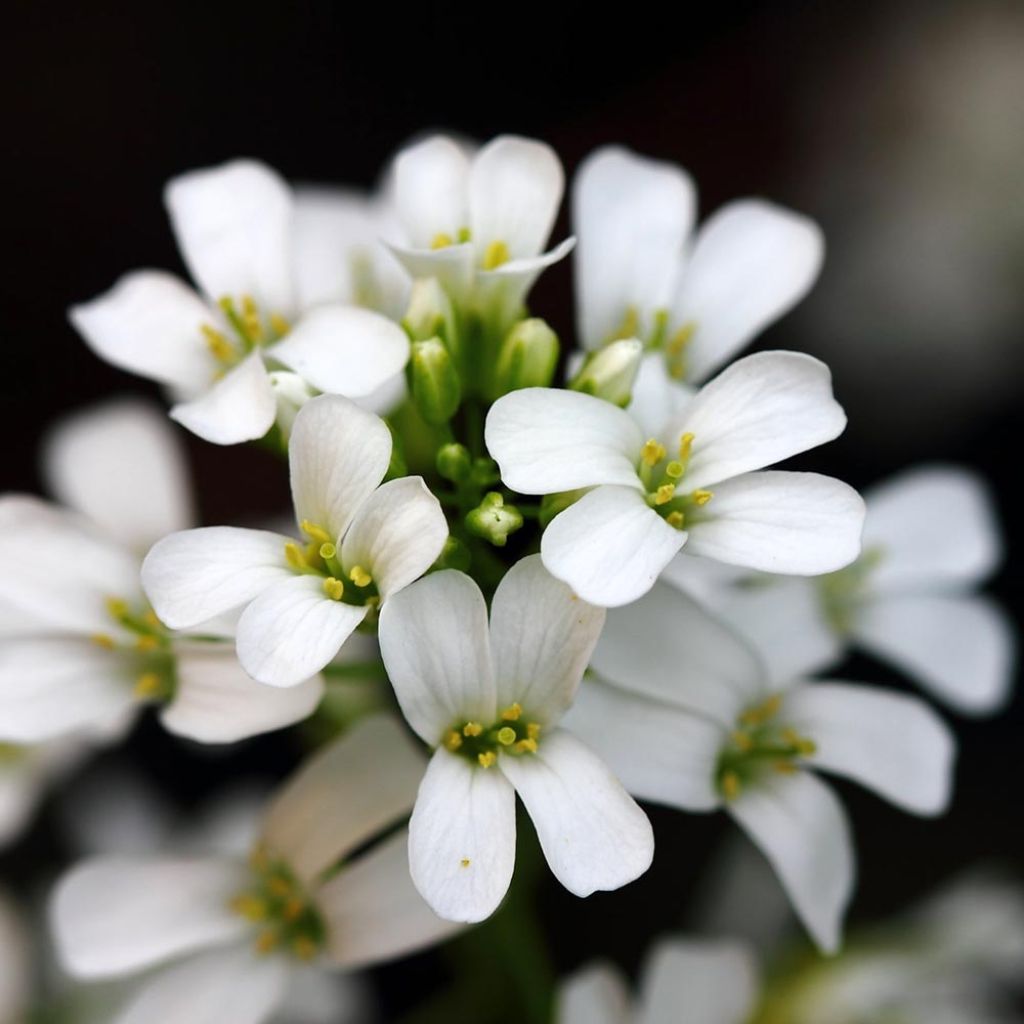

Arabis procurrens Neuschnee
Arabis procurrens Neuschnee
Arabis procurrens Neuschnee
Spreading Rock Cress, Perennial Rockcress
This item cannot be shipped to the selected country
Delivery charge from €5.90
More information
Schedule delivery date,
and select date in basket
This plant carries a 12 months recovery warranty
More information
We guarantee the quality of our plants for a full growing cycle, and will replace at our expense any plant that fails to recover under normal climatic and planting conditions.
From €5.90 for pickup delivery and €6.90 for home delivery
Express home delivery from €8.90.
Does this plant fit my garden?
Set up your Plantfit profile →
Description
The Arabis procurrens 'Neuschnee' is a relatively rarely cultivated rockcress. This pretty, hardy rock plant forms a carpet-like ground cover that is particularly decorative with its evergreen, dense, and tough medium-green foliage and its spring flowering in generous clusters of slightly scented white flowers. It is easy to grow in well-drained soil. The combination of its dense and glossy cushions is magnificent against the matte grey of the stones. It is an ideal perennial for covering walls or cascading down slopes.
The Arabis procurrens 'Neuschnee' belongs to the Brassicaceae family. This evergreen rockcress is native to temperate regions of the Northern Hemisphere. This perennial ground cover spreads through rhizomes and has a relatively slow growth. It forms a dense ground cover that does not exceed 15 to 25 cm (6 to 10in) in height, with a minimum spread of 35 cm (14in). Flowering takes place in April-May. Its numerous small flowers with a diameter of 1 cm (1in), slightly scented, are gathered in generous clusters. They bloom above the bright green to grey-green foliage with a velvety appearance.
Like the quintessential rock plants, this robust rockcress also makes an excellent ground cover along borders, in flowered paving, as a topping for walls, on slopes, etc. Delightful, like a 'drapery' on stones and walls, Arabis procurrens 'Neuschnee' is an excellent ground cover that can cover a significant area in a few years and prevent the growth of weeds. It is best to avoid planting it in a meticulously maintained rock garden, where it could harm more delicate plants. It is well-suited for highlighting a staircase descent, the edge of a flowerbed, or a gravel path. It can also carpet the base of bushes or hedges, even in partial shade, as it is as undemanding as ivy. The rockcress 'Neuschnee', so long-lived and easy to grow, will be perfect at the foot of late-flowering tulips or roses.
Report an error about the product description
Arabis procurrens Neuschnee in pictures
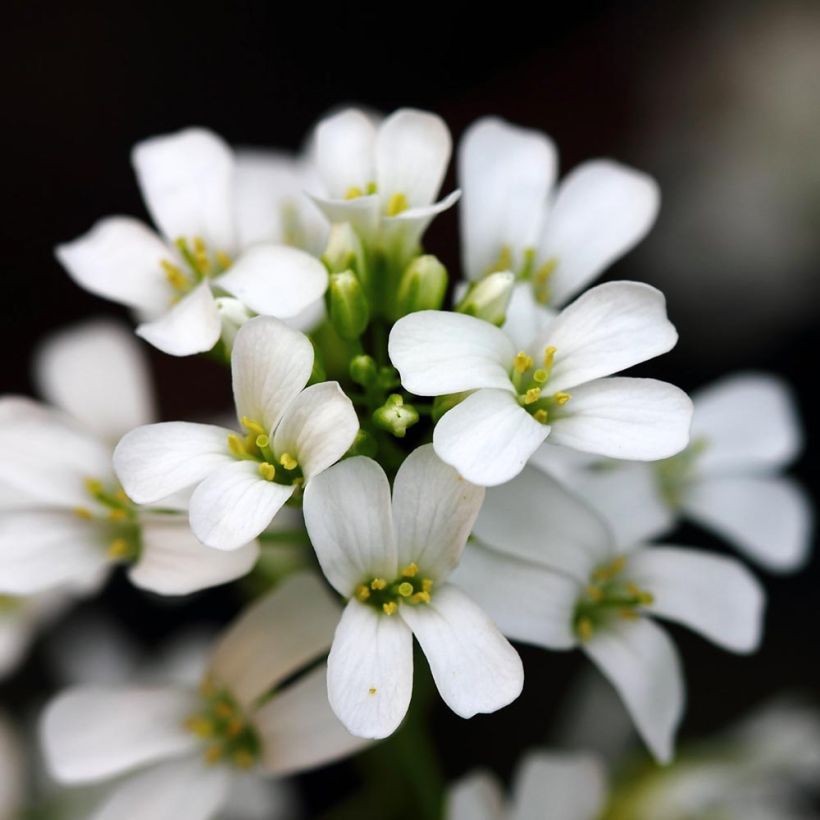



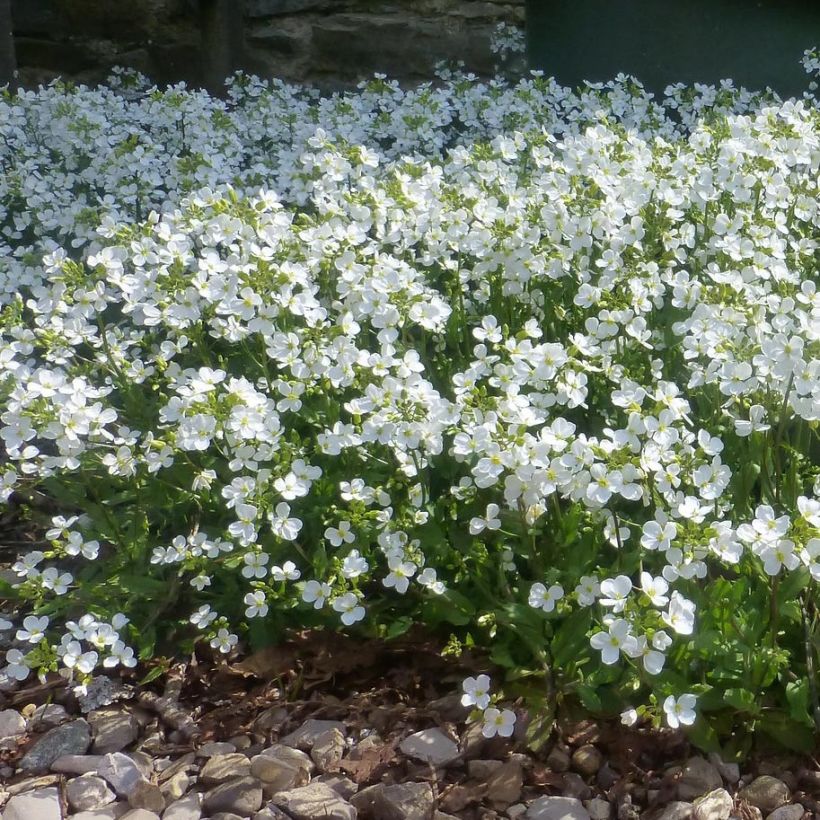

Flowering
Foliage
Plant habit
Botanical data
Arabis
procurrens
Neuschnee
Brassicaceae
Spreading Rock Cress, Perennial Rockcress
Cultivar or hybrid
Other Arabis
Planting and care
Arabis plants thrive in well-drained soil with full sun exposure. They can grow in rocky or gravelly soil and tolerate slightly acidic, neutral, or limestone soil. These plants are durable and can endure summer drought once their roots are established. Plant from spring to autumn to grow them and water regularly until they are established. Be sure to prevent neighbouring plants or weeds from disrupting their slow establishment. After flowering, you can use shears to prune the shrubs and encourage branching and denser growth. Arabis plants are easy to grow and do not have any known enemies in our gardens.
Planting period
Intended location
Care
This item has not been reviewed yet - be the first to leave a review about it.
Spring flowering perennials
Haven't found what you were looking for?
Hardiness is the lowest winter temperature a plant can endure without suffering serious damage or even dying. However, hardiness is affected by location (a sheltered area, such as a patio), protection (winter cover) and soil type (hardiness is improved by well-drained soil).

Photo Sharing Terms & Conditions
In order to encourage gardeners to interact and share their experiences, Promesse de fleurs offers various media enabling content to be uploaded onto its Site - in particular via the ‘Photo sharing’ module.
The User agrees to refrain from:
- Posting any content that is illegal, prejudicial, insulting, racist, inciteful to hatred, revisionist, contrary to public decency, that infringes on privacy or on the privacy rights of third parties, in particular the publicity rights of persons and goods, intellectual property rights, or the right to privacy.
- Submitting content on behalf of a third party;
- Impersonate the identity of a third party and/or publish any personal information about a third party;
In general, the User undertakes to refrain from any unethical behaviour.
All Content (in particular text, comments, files, images, photos, videos, creative works, etc.), which may be subject to property or intellectual property rights, image or other private rights, shall remain the property of the User, subject to the limited rights granted by the terms of the licence granted by Promesse de fleurs as stated below. Users are at liberty to publish or not to publish such Content on the Site, notably via the ‘Photo Sharing’ facility, and accept that this Content shall be made public and freely accessible, notably on the Internet.
Users further acknowledge, undertake to have ,and guarantee that they hold all necessary rights and permissions to publish such material on the Site, in particular with regard to the legislation in force pertaining to any privacy, property, intellectual property, image, or contractual rights, or rights of any other nature. By publishing such Content on the Site, Users acknowledge accepting full liability as publishers of the Content within the meaning of the law, and grant Promesse de fleurs, free of charge, an inclusive, worldwide licence for the said Content for the entire duration of its publication, including all reproduction, representation, up/downloading, displaying, performing, transmission, and storage rights.
Users also grant permission for their name to be linked to the Content and accept that this link may not always be made available.
By engaging in posting material, Users consent to their Content becoming automatically accessible on the Internet, in particular on other sites and/or blogs and/or web pages of the Promesse de fleurs site, including in particular social pages and the Promesse de fleurs catalogue.
Users may secure the removal of entrusted content free of charge by issuing a simple request via our contact form.
The flowering period indicated on our website applies to countries and regions located in USDA zone 8 (France, the United Kingdom, Ireland, the Netherlands, etc.)
It will vary according to where you live:
- In zones 9 to 10 (Italy, Spain, Greece, etc.), flowering will occur about 2 to 4 weeks earlier.
- In zones 6 to 7 (Germany, Poland, Slovenia, and lower mountainous regions), flowering will be delayed by 2 to 3 weeks.
- In zone 5 (Central Europe, Scandinavia), blooming will be delayed by 3 to 5 weeks.
In temperate climates, pruning of spring-flowering shrubs (forsythia, spireas, etc.) should be done just after flowering.
Pruning of summer-flowering shrubs (Indian Lilac, Perovskia, etc.) can be done in winter or spring.
In cold regions as well as with frost-sensitive plants, avoid pruning too early when severe frosts may still occur.
The planting period indicated on our website applies to countries and regions located in USDA zone 8 (France, United Kingdom, Ireland, Netherlands).
It will vary according to where you live:
- In Mediterranean zones (Marseille, Madrid, Milan, etc.), autumn and winter are the best planting periods.
- In continental zones (Strasbourg, Munich, Vienna, etc.), delay planting by 2 to 3 weeks in spring and bring it forward by 2 to 4 weeks in autumn.
- In mountainous regions (the Alps, Pyrenees, Carpathians, etc.), it is best to plant in late spring (May-June) or late summer (August-September).
The harvesting period indicated on our website applies to countries and regions in USDA zone 8 (France, England, Ireland, the Netherlands).
In colder areas (Scandinavia, Poland, Austria...) fruit and vegetable harvests are likely to be delayed by 3-4 weeks.
In warmer areas (Italy, Spain, Greece, etc.), harvesting will probably take place earlier, depending on weather conditions.
The sowing periods indicated on our website apply to countries and regions within USDA Zone 8 (France, UK, Ireland, Netherlands).
In colder areas (Scandinavia, Poland, Austria...), delay any outdoor sowing by 3-4 weeks, or sow under glass.
In warmer climes (Italy, Spain, Greece, etc.), bring outdoor sowing forward by a few weeks.

































